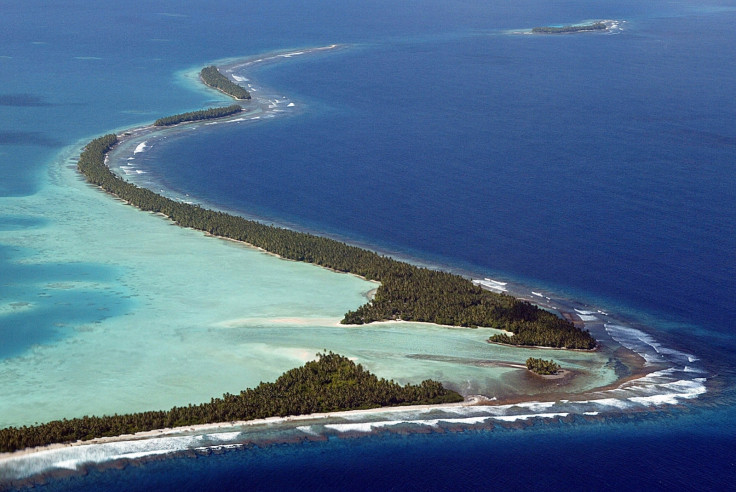'Sinking' Pacific nation Tuvalu appears to be growing
KEY POINTS
- The tiny nation has grown by over 180 acres in the past 40 years, despite scientists warning it will be uninhabitable by 2050.
- Several Pacific islands have already been lost to rising sea levels and erosion.
The tiny Pacific nation of Tuvalu has grown over 180 acres in the past 40 years, despite scientists warning that the islands will be uninhabitable by 2050 due to rising sea levels.
Last year, scientists warned that Tuvalu and several other Pacific nations were expected to sink by the end of the century if countries do not take measures to tackle climate change.
Five reef islands in the Solomon Islands have already been lost to rising sea levels and a further six have been severely eroded.
However, a new study by the University of Auckland has revealed that Tuvalu has actually grown significantly over the past 40 years.
The total land area of Tuvalu's small islands increased by 2.9% between 1971 and 2014, according to the study published in the journal Nature Communications.
Tuvalu, which is made up of nine ring-shaped islands called atolls, has grown by over 180 acres, the size of around 73 rugby fields, since the 1970s.
The growth rate is significant considering that sea levels in the region rose at twice the global average during that period.
In November, Professor Tim Flannery, of La Trobe University in Melbourne, told Australian media that some of the Pacific islands, including Tuvalu, could be "rendered uninhabitable" in the next 30 years due to "beach and coastal erosion and flooding".
Paul Kench, one of the authors of the Auckland University study, challenged this assumption.
"We tend to think of Pacific atolls as static landforms that will simply be inundated as sea levels rise, but there is growing evidence these islands are geologically dynamic and are constantly changing," he said.
"The study findings may seem counterintuitive, given that [the] sea level has been rising in the region over the past half century, but the dominant mode of change over that time on Tuvalu has been expansion, not erosion," Kench added.
The study found that factors such as wave patterns and sediment dropped by storms could offset the effect of erosion on the islands.
Researchers suggested that Tuvaluans should start preparing for a long-term existence on the islands, rather than planning to migrate to Australia or New Zealand.
"On the basis of this research we project a markedly different trajectory for Tuvalu's islands over the next century than is commonly envisaged," Kench stated. "While we recognise that habitability rests on a number of factors, loss of land is unlikely to be a factor in forcing depopulation of Tuvalu."























